The right copyright for African libraries
09 February 2025
Libraries played a prominent role at the International Conference on Intellectual Property and the Public Interest, held in Johannesburg and Cape Town, South Africa, from 3-6 February. Discussions highlighted the need the voice and experience of Africans – and the librarians who support them – to be better reflected in the way copyright works.
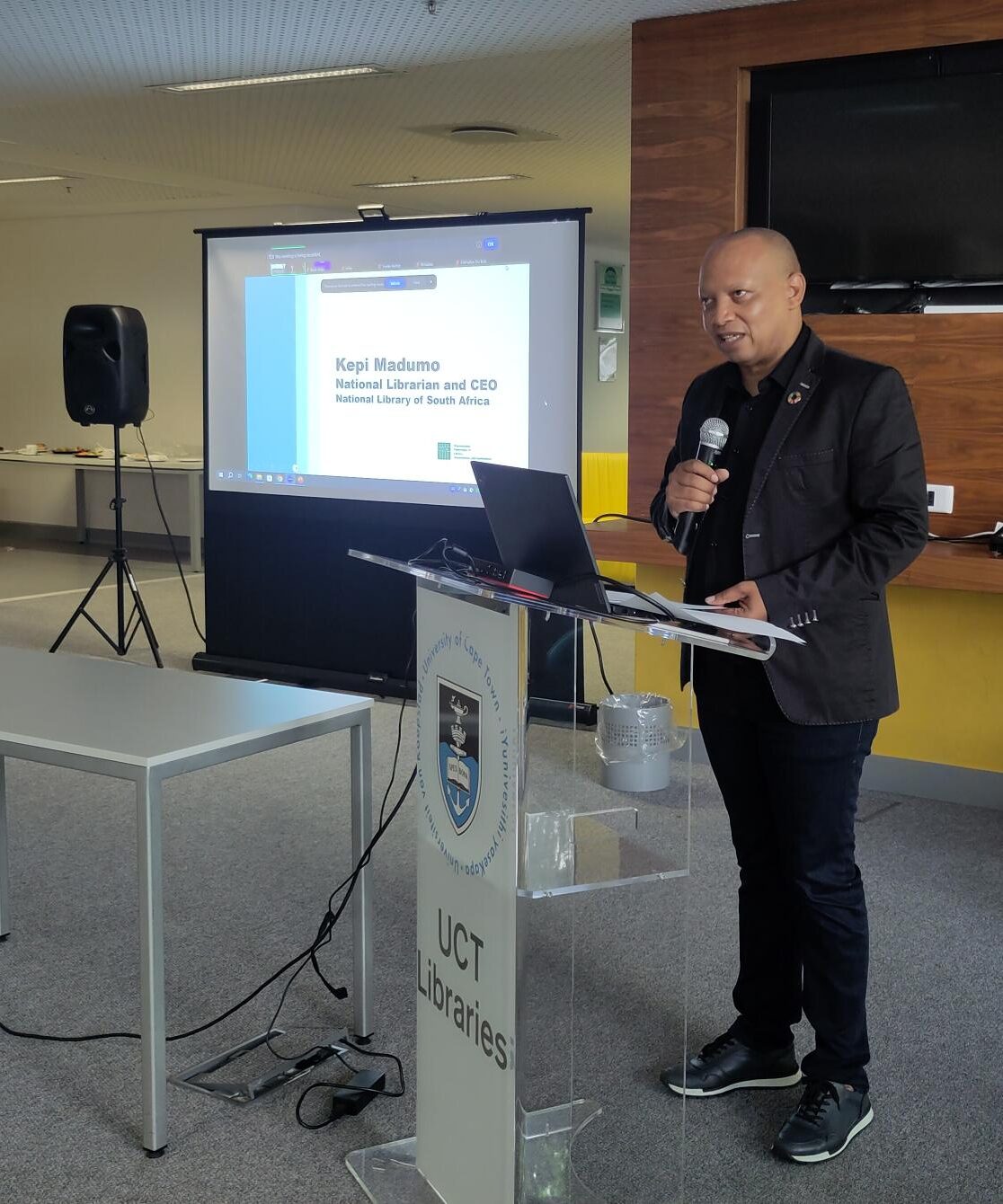
The meetings in South Africa were the opportunity for a busy programme of conferences and meetings that advanced the work of the Advisory Committee on Copyright and other Legal Matters and IFLA as a whole.
Alignment in the interests of library, education and Wikimedia stakeholders
In an informal meeting of the Advisory Committee on Copyright and other Legal Matters (CLM) with invited guests from Education International and Wikimedia, we explored what our sectors have in common around copyright. It was clear that we needed progress on copyright legislation in order to provide guarantees for our work, and prevent librarians, teachers and others from being criminalised simply for doing their jobs. Too often the interests of our sectors were not heard faced with a simplistic narrative that failed to account both for dysfunctions in copyright markets, and the needs of our users.
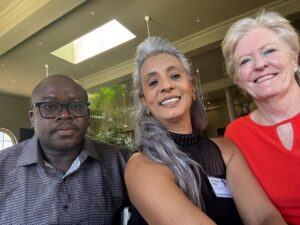
Supporting this, we also explored models for better cooperation between education, library and Wikimedia stakeholders, building on the example of the Recreate coalition in South Africa. In addition, there was lots to discuss about how to teach copyright effectively, and in particular to help teachers, researchers and others understand how to make the most of the laws in place, rather than just seeing them as a list of things we cannot do. We will follow up on the meeting in CLM in order to take these ideas forwards.
The need to mobilise
A half-day conference focused on IFLA issues then took place at the University of Cape Town’s Library Learning Lounge, opened by the CEO and National Librarian of the National Library of South Africa, Kepi Madumo.
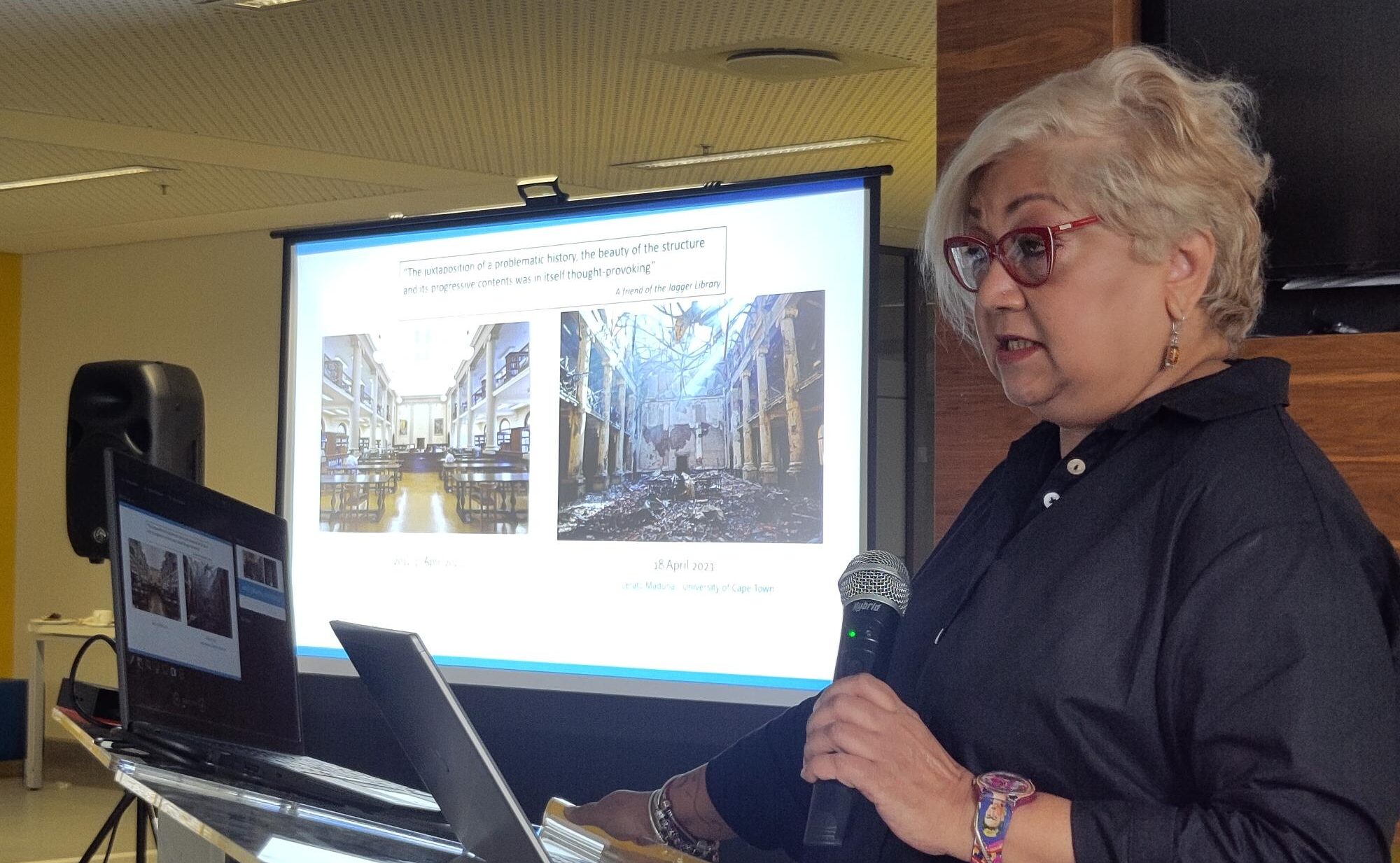
This brought together international and South African speakers to explore different aspects of the environment in which libraries work, how this can determine how well we can fulfil our missions, and what we need to do about it. After an overview of why libraries engage in the World Intellectual Property Organization from IFLA, Ujala Satgoor, head of the Unviersity’s libraries, gave a powerful presentation telling the story of the loss of the historic Jagger Library in 2021. In addition to rich practical lessons about how to manage in such a situation, she highlighted the impacts of legal matters – including the impossibility under copyright law to digitise many materials beforehand, and the impacts of unclear agreements with donors. We then heard an update on South Africa’s long overdue copyright reforms from Denise Nicholson (CLM expert advisor), an exploration of what appropriate regulation of AI could look like from Ramika Bansi (CLM member), and research into how to build librarians’ own copyright awareness from Rodney Malesi (CLM member). The event as a whole helped underline why it is important for librarians to engage with legal questions. This was not just a case of working to avoid anything harmful happening, but also of making sure that the voice and interests of library users are heard.
Towards an African take on the international copyright agenda
Finally, a broader conference, organised by the Recreate coalition, explored the specificities of Africa in copyright discussions.
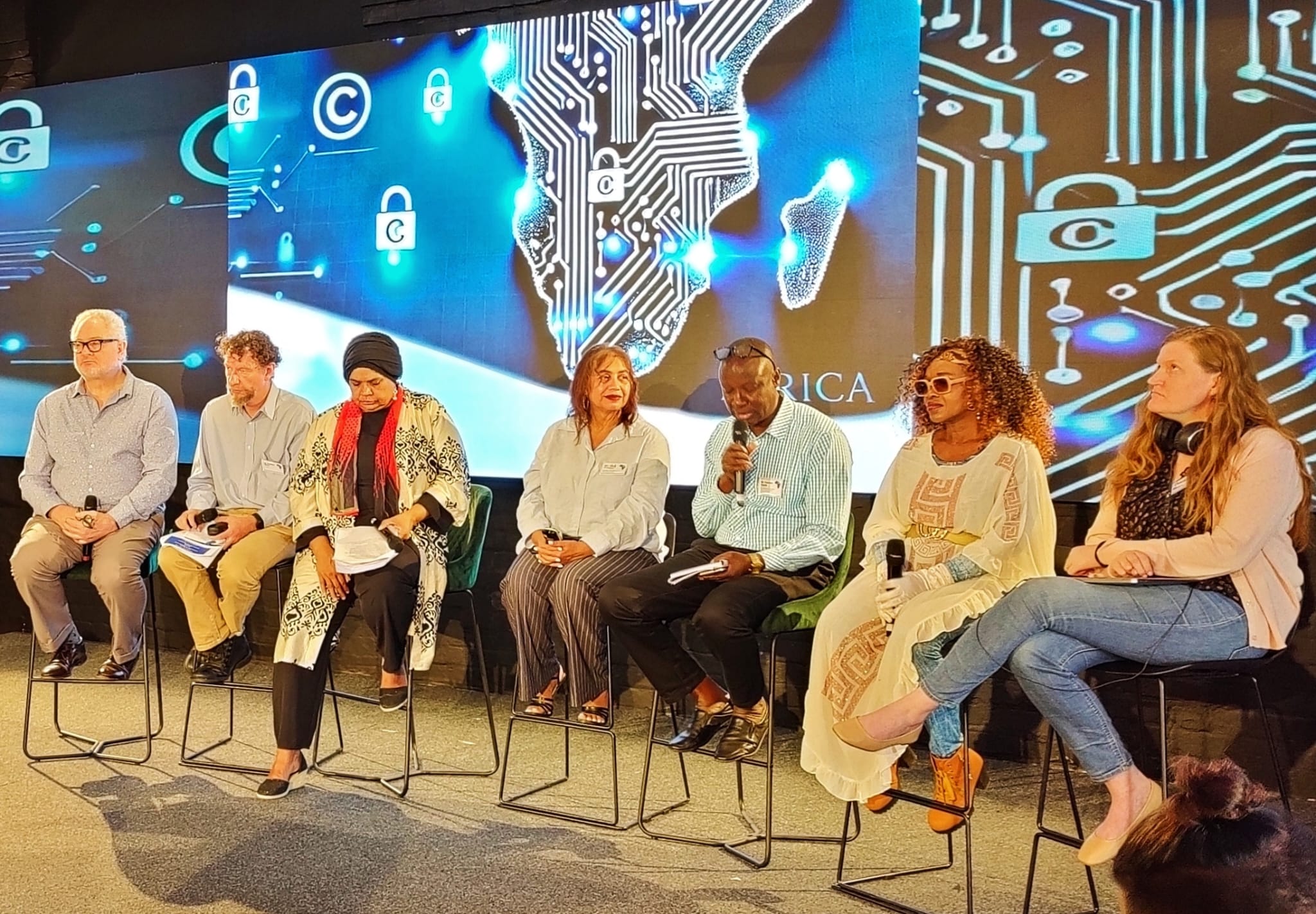
The day started with powerful examples from South Africa itself. The President of Education International, Mukwana Maluleke, opened with a call for rapid action to ensure that copyright laws work for teachers, not just for large publishers. He was followed by insights into the poor treatment of artists by labels and collecting societies, and the experience of the Jagger Library fire. All pointed to the need to see copyright needs as a social justice issue, and reform it accordingly. The next session then asked key questions about how appropriate the intellectual property framework, with a keynote by Dr Chidi Oguamanam from the University of Ottawa. He highlighted the tendency to disregard the importance and value of traditional knowledge, treating it rather as a catch-all category for things that were hard to place. This served badly societies rich in such knowledge, that otherwise risked being exploited by businesses in other countries. A final session looked at the international agenda, and how work at the World Intellectual Property Organization could contribute to a copyright framework that best works for libraries. This session reiterated points about the narrowness of current discussions, which do not take account of the costs of preventing access, and focus more on protecting (mainly rich country) exports. It also called for a stronger focus on evaluating the wider impacts of decisions about intellectual property on equality and human rights, something that would certainly help better reflect the needs of libraries.
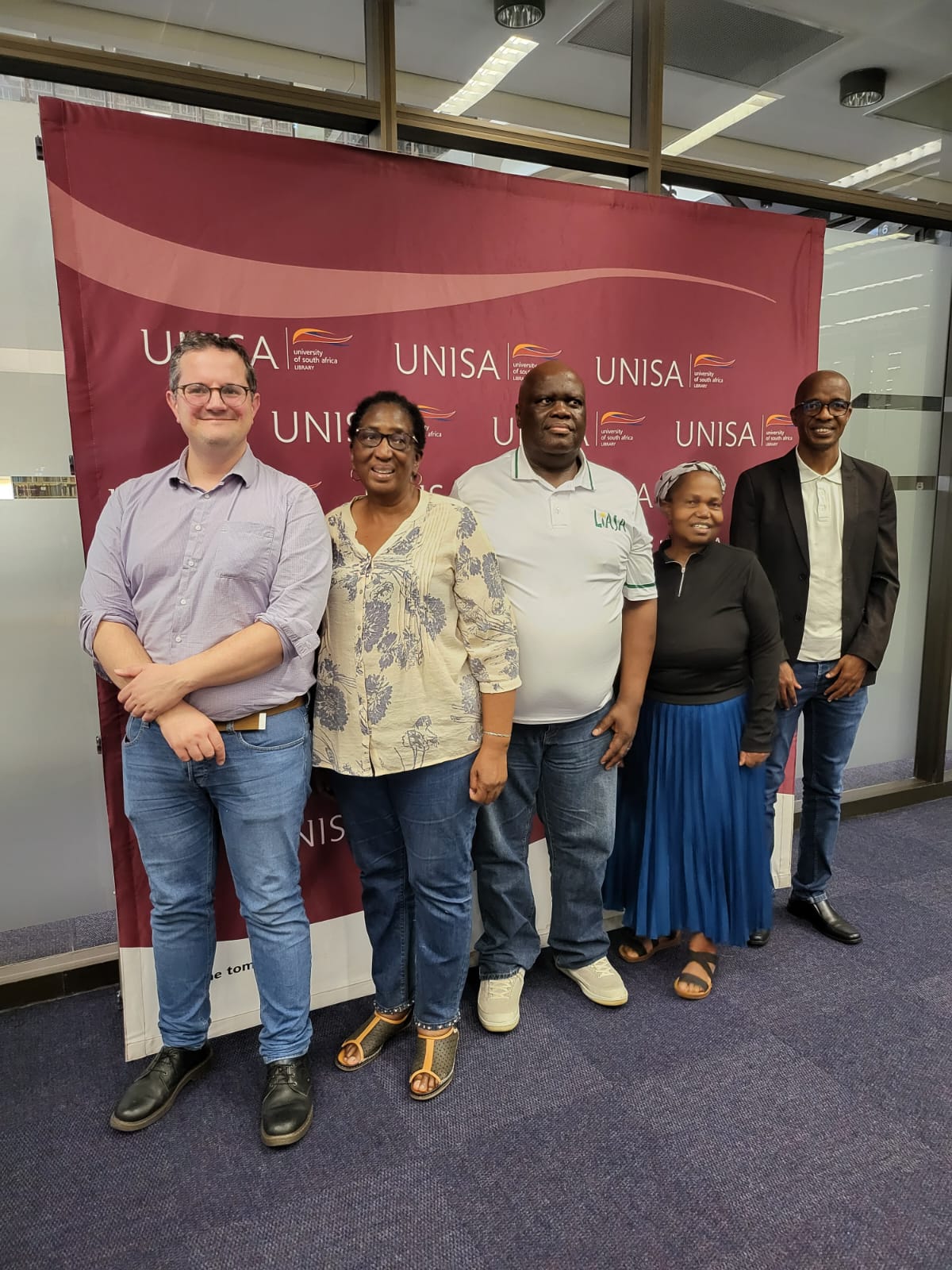
Engaging with South African members and our Regional Office
IFLA’s participation offered a very welcome opportunity to meet with key South African members, as well as our Regional Office at the University of South Africa in Pretoria. The meeting offered the occasion to hear about the exciting work planned by the Regional Office, including conferences, support for events organised by IFLA sections, and plans for building the capacity of library associations. We also discussed ideas about building stronger regional library fields in general, building on the research recently released on the IFLA website. We’re looking forward to working with Regional Offices and Regional Division Committees to move up a gear in our work here. IFLA is very grateful to our participants at the event – Rodney Malesi, Everlyn Anduvare, Ramika Bansi, Ceslause Ogbonnaya and in particular Denise Nicholson who also contributed strongly to the organisation. Thanks also to the Programme for Information Justice and Intellectual Property for the grant that made participation possible, to the Recreate coalition for organising the event, and to the IFLA Regional Office for its hospitality.